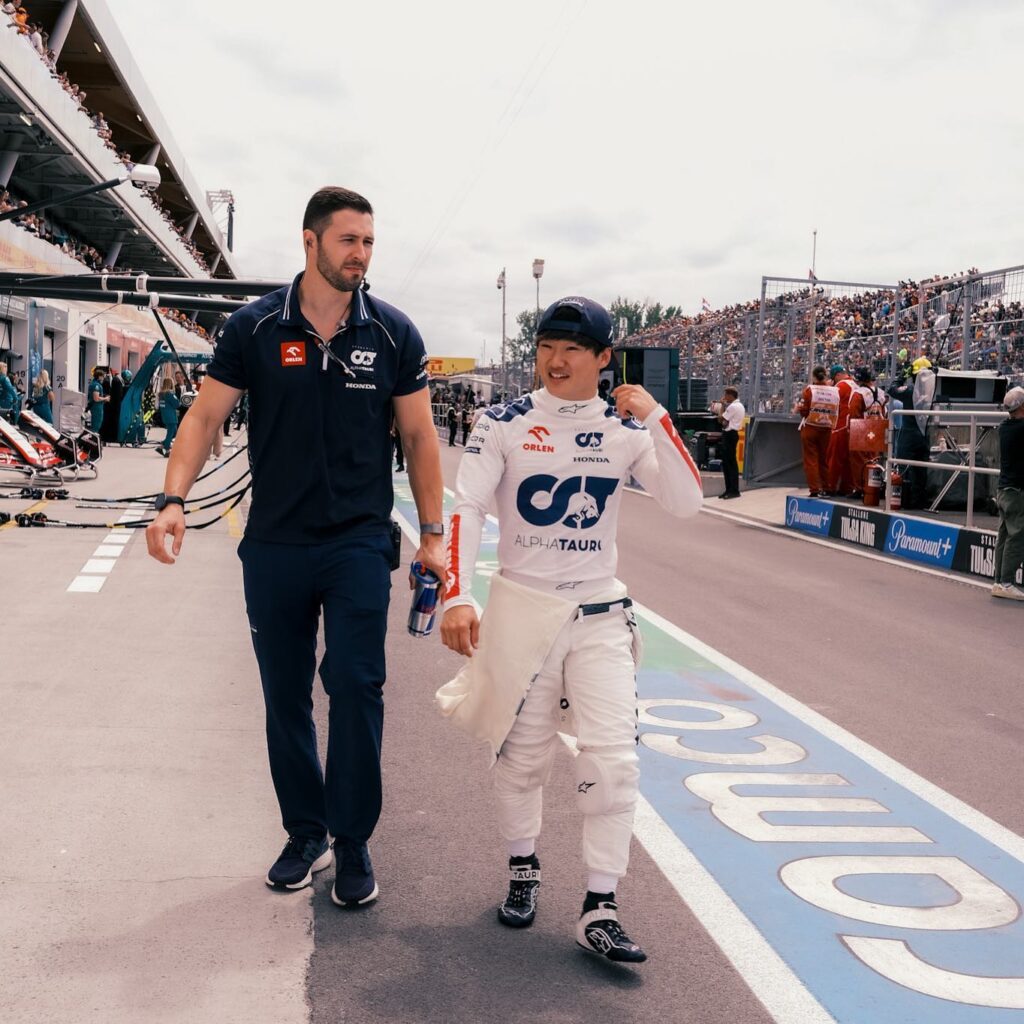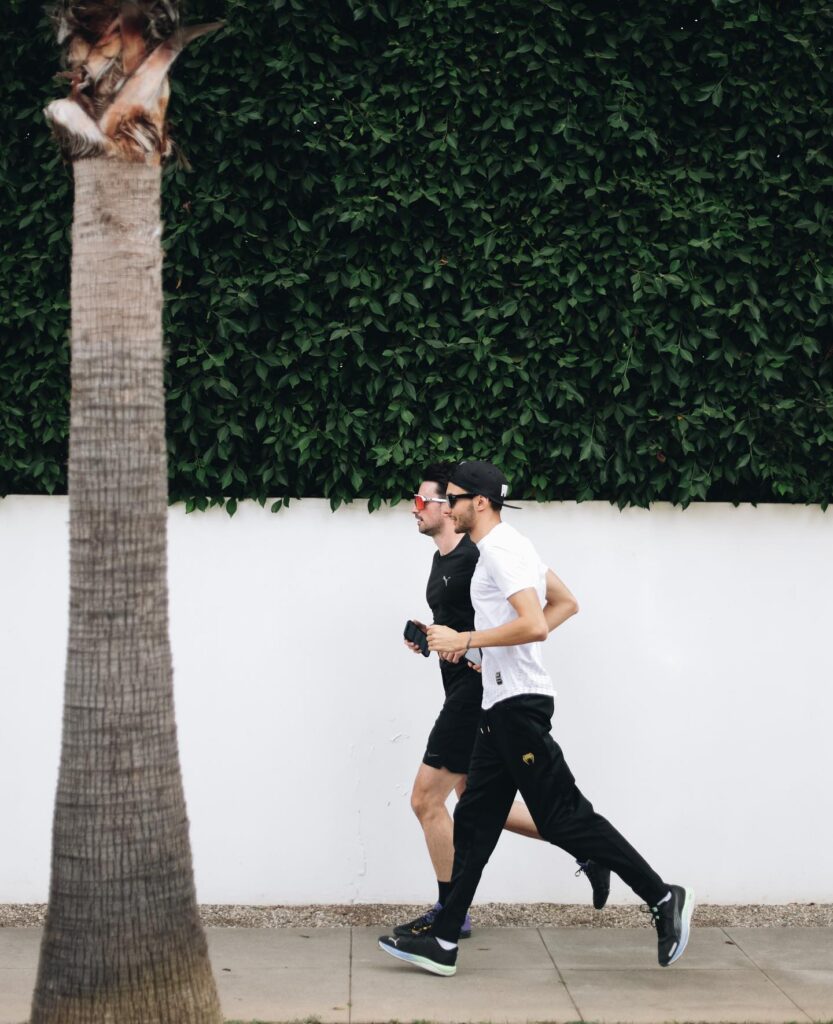Do you feel disoriented, drowsy and irritable after a 24 hour long flight? Jet Lag is a real thing that frequent travelers like myself encounter as a health hazard. Experts say that jet lag occurs for every time zone crossed, and I often cross three continents within a month. It takes a few days to catch up on sleep, restore my body rhythm and proper digestion. But the good news is, that with some small changes, you can get a better handle on alleviating your jet lag symptoms.
Formula one (F1) drivers, from F1 travel company, Grand Prix Grand Tours, are one of the highest performing team of athletes who also cross time zones frequently.
While the 2024 F1 season kicked off on 2 March, last year’s season saw teams traveled 8,200 miles on a 19-hour flight only to have less than a week to adapt to a 12-hour time difference ahead of the season finale. Over the year’s season as a whole, drivers hit 20 countries in just nine months.
F1 drivers frequently have to perform in high-pressure races all over the world, all the while dealing with dramatic shifts in time zones. What’s more, they even have to contend with jet lag all the while facing a slew of pressures like G force and the threat of dehydration.
Simon Mawdsley, Co-Founder of F1 travel company, Grand Prix Grand Tours says: “F1 drivers have had to become masters in adapting to different time zones in extremely short periods of time. It’s a global sport that often takes them to several countries (even continents) in a week.
“While sleep deprivation and driving are never a good mix, it becomes particularly dangerous when bombing down a road at 220 mph. So, those in this industry take jet lag recovery pretty seriously!”
Grand Prix Grand Tours shares tips from F1 legends on how to beat jet lag when taking short trips. Grand Prix Grand Tours offers fully inclusive F1 and MotoGP packages to all of the top events in the sport. Clients can drive beautiful routes, stay at fantastic hotels, and watch the most popular racing car events in the world.

- Lando Norris: Use Light Exposure to Combat Jet Lag
Physio of Lando Norris, Jon Malvern, suggests using light exposure to your advantage when trying to adapt to new time zones.
Simon says: “Light basically acts as a signal, telling your brain and hormones when it is time to be awake and asleep. You can use this to your benefit when trying to adapt to different time zones in short periods.
“For example, after arriving at your destination, you can make an effort to expose yourself to as much natural light as possible. This will help you align your circadian rhythm with the sunrise and sunset of the new location.”

- Yuki Tsunoda’s performance coach, Michael Italiano: ‘Sleep Bagging’ for Beating Jet Lag
Yuki Tsunda’s performance coach, Michael Italiano, has shared his go-to advice for beating jet lag.
“He recommends “bagging” sleep in the first few days of your trip by getting a few extra hours of rest than you normally would. Doing so gives your body the rest time it needs while also helping you adapt to the new timezone.”
Italiano also places great importance on the role of nutrition in the recovery process.
“As in most situations, drinking water and eating nutritious foods is beneficial. It helps your body reset and recover.”
- Carlos Sainz: Caffeine and Reading Lights to Stay Awake
“Carlos Sainz swears by caffeine and light exposure.”
Ferrari’s ‘Chilli’ shared advice on overcoming jet lag while taking a seven-hour flight to Dubai.
“He praised light exposure as the most effective method to get yourself to fall asleep or stay awake at specific times. He suggests applying this strategy during the flight to help you adjust to the new time zone before you reach your destination.”
“If you’re feeling extremely tired and are on the verge of falling asleep on the plane, despite it not being nighttime in your end-destination, use available light sources to stay awake. The reading light or the television screen – anything that emits light —this will signal to your body that it’s not time to sleep just yet.”
But when the light fails, bring in the caffeine.
“If you do still feel yourself dropping off, Carlos suggests getting a coffee or tea. Sometimes, you just need an extra dose of caffeine to keep you awake.”
- Daniel Ricciardo: Preparation For Jet Lag Begins Before The Plane
McLaren driver Daniel Ricciardo recommends preparing as much as possible with the time you have, including starting to adjust to the time zone before you even board the plane.
“Ricciardo stresses the importance of preparing as much as possible with the time you have. You can begin preparations before you even set off, adapting your time zone at home slightly before you get there.”
An example of this would be aligning your meal times closely with those of your destination. Eating and digestion promote wakefulness and influence your circadian rhythm. Scheduling your breakfast, lunch, and dinner to coincide more closely with the mealtimes of your destination can be a great way to help your body clock adjust to the timezone shift before travelling.
“Implementing such strategies will allow you to cut straight to enjoying your holiday, rather than spending the first few days asleep in bed!”

- Valtteri Bottas: Coffee and Exercise
Finnish racing legend Valtteri Bottas is currently competing for Alfa Romeo but previously spent four years driving for Mercedes. According to his experience, coffee and exercise are the answer.
“Bottas is a devoted coffee enthusiast; some brands have even introduced an F1 blend inspired by his coffee preferences. When he’s not searching for coffee, he’s often found exercising.
“An avid biker, he even finished second in the Wafer division of the Belgian Waffle Ride Kansas. Both of these passions contribute to his ability to adjust his body clock to varying time zones in short periods.”
Exercising at certain times of the day can alter the circadian rhythms in a way that can help aid jet lag recovery, according to The Journal of Physiology. And, as we all know, the caffeine in coffee helps keep you alert and awake.

- Tom Clark, Esteban Ocon’s Performance Coach: Light-Blocking Sunglasses
“Esteban Ocon’s performance coach, Tom Clark, is possibly the most dedicated in addressing jet lag. He is pursuing a Doctorate in Jet Lag Research.”
Clark has delivered presentations to the team on the disorder and how to deal with it.
“One of the strategies Esteban praises is light-blocking sunglasses.”
Blue light signals ‘wake’ time to the body which can interrupt the processes of a restful night’s sleep. A recent systematic review suggested that light-blocking glasses may help people with insomnia by preventing those signals from sending these messages to your body.
In turn, they can lower stress hormones and improve sleep quality.
(This post was contributed by Grand Prix Grand Tours)